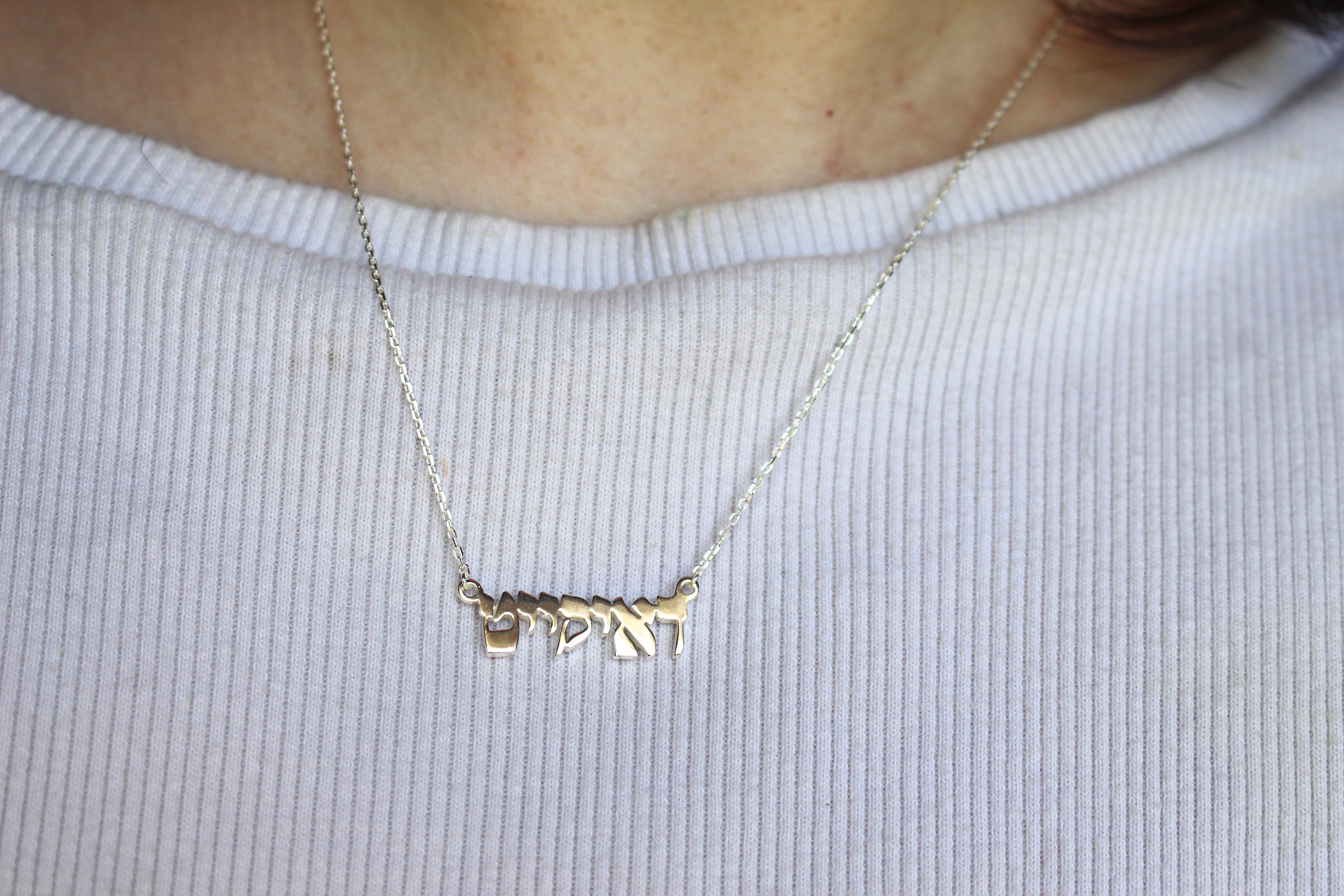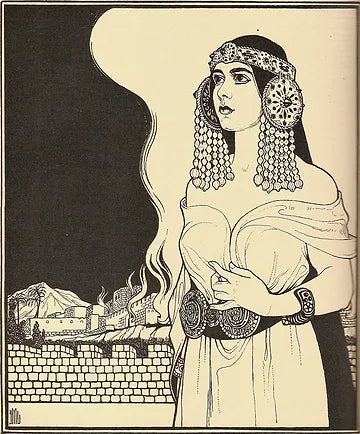Short Answer: Yes.
But I know that's not what you're here for, so here is the even longer answer that also means, "yes!"
We all know the famous, "You shall not tolerate a sorceress to live." of Exodus 22:17, sometimes translated to, "You shall not suffer a witch to live" and so on.
This is the line most commonly used to say that witchcraft is forbidden in Judaism, but is it really?
The word actually used is, "mekhashefa", also spelled machsefa, or maskhsefa. In modern Hebrew, it translates to "witch". But what about Biblical Hebrew? In the Septuagint, the translation of Hebraic traditions into Greek that was written by Jewish sages in 3rd century B.C.E., the word is translated to "pharmakeia" which, in turn, translates to "herbalist", "drug maker", or "witch"

However, this translation was contested by Reginald Scott, who translated pharmakia to mean "poisoner" in the 16th century. (1)
This translation denounces the use of herbs to cause harm, as opposed to one who uses magic in general.
Greek scholars do acknowledge that the word means witch, as in a practitioner of magic, but the methodology and means would have been greatly different from modern practitioners.
Alternatively, Rabbi Gershon Winkler argues that it is the word "suffers" that has been mistranslated when instead it should say "sustain", not "suffer".
This conclusion lead Rabbi Winkler to believe that the meaning was instead, "don't get into the habit of supporting the livelihood of the village magician; don't let some guy with a lot of supernatural power drain you of your savings through fear and intimidation. Let him get a job like everybody else, and perform his magic out of the goodness of his heart and in recognition of the sacred gift he possesses." (2)
Rabbi Winkler also discusses the possibility that it means "from sorcery you should not live", meaning that you should not make sorcery your main livelihood nor rely on it for every aspect of your daily life.
Rabbi David Hartley Mark mirrors this in his interpretation of the line, "Do not let a woman make her living by means of sorcery or witchcraft’—in other words, teach or train her in another profession so that she will be able to support herself and her family in a respectable and socially-acceptable way.” (3)
Now, while the subtle misogyny of this leaves a bitter taste in the mouth, it is understood that witchcraft, whether real or interpreted, was extremely dangerous to Jews throughout the years, so keeping Jewish people from practicing was a way of keeping Jews safe and alive.
So, the conclusions drawn here are: do not let your entire life be about witchcraft, whether it be by supporting a witch monetarily or using it as your only source of income, do not let the craft consume you. This would be an issue only for those whose entire lives, (24/7, 7 days a week) are solely about witchcraft and nothing else. This, in effect, would impact very few practicing witches, nearly all of whom have lives aside from their practice, just as even the most dedicated Rabbi has a life and family outside of Torah studying and davening.
"Sages taught in a baraita: The verse: “You shall not allow a witch to live” (Exodus 22:17), does not refer only to a female who practices sorcery; both a man and a woman are included. If so, why does verse state “a witch”? This is because most women are familiar with witchcraft." Sanhedrin 67a, The William Davidson Talmud
From this, we know that while the word, "witch" or "sorceress" is what is most commonly translated to, it doesn't mean that it is only forbidden for women, but men as well. The reason that they use the feminine is that witchcraft is exceedingly common among women. Pirkei Avot confirms this with, "The more wives, the more witchcraft".
It is here where we begin to discuss the historical use of the word witch as opposed to the modern interpretation.
The modern interpretation usually goes along the lines of "commands energy to change the world around them" with witches making small variations to fit their own practice. But this wasn't always the definition.
By the modern term, Kabbalah could be witchcraft. A mezuzah could also be considered witchcraft. So could the wearing of a Hamsa, or an evil eye, red string, or a blue bead sewn into our clothes. There is no one definition of what a witch is in the Torah, nor do we have a comprehensive view of what a witch may have looked like in biblical times.
Nachmanides (Moses ben Nahman, aka Ramban) believed that HaShem (the source, the divine) created the natural (earth, human, earth-rules like gravity), and also the spiritual (spirits, ghosts, demons, Sheydim, angels, deities, etc). It is through the use of the spiritual that witches subvert HaShem and change the natural laws of the Earth through idolatry (11).
However, this argument is contingent upon the use of the spiritual, as opposed to the Divine, and the act of idolatry. Many Jewish witches, such as myself and my mother, work entirely through HaShem. While the spiritual layer exists and may be deployed in our work, it is through HaShem we practice. As Moshe lifted his staff and the Red Sea parted, so functions our practice. It is through HaShem that we direct energy. If HaShem should deploy an angel to do his bidding, as he did with Gabriel to save Avraham from the fire, so be it. If another spirit were to appear, so be it.
Avodah Zarah, which is to worship "foreign idols" is commonly referenced here, however, to acknowledge and accept that realm is not the same as worshipping it as HaShem (the Source).
We see the spiritual realm referenced in our sacred texts as Jacob fought the angel sometimes identified as Gabriel, when HaShem uncovered Balaam's eyes and before him stood an angel, as Lilith prowled the night causing wet dreams.
This spiritual level is widely acknowledged and called upon time and time again. To protect from the wrath of Lilith, amulets bearing the names of angels, "Senoy, Sansenoy, and Semangelof", were common for women and children. This invocation of the spiritual was not only accepted but promoted within Jewish circles.
To acknowledge the power that lies within the realm of the spiritual is not to worship it or to see it as HaShem, the creative force of the Universe.

To understand the things commonly associated with witchcraft, and witches, we look into divination, though it is important to note that practicing witches are not required to partake in divination of any kind.
The 9th prohibition is that we are forbidden from performing the practice of yidoni. It is also a form of idolatry, in which the person takes a bone from the bird called yadu'a,1 places it in his mouth, burns incense, utters certain words, and performs certain actions, until he reaches a state similar to unconsciousness, when he goes into a deep sleep and predicts the future. (4)
Leviticus 19:31 states, "Do not turn to the idols called ov or yidoni."
This is a very specific act. So, could a witch simply not put a bird in her mouth, burn incense, say those words, and be fine? I say, technically, yes, as this is not a general prohibition. But there are other instances of divination to discuss.
The Tanakh forbids:
- nahash;as a noun, nahash translates as snake, and as a verb it literally translates as hissing. The verb form can be extended to mean whispering.
- onan; literally translates as clouds, possibly referring to nephomancy.
- kashaph; is of ambiguous meaning, being either from a root meaning mutter, or from a compound of the words kash (herb) and hapalah (using) - hence meaning herb user. The Septuagint renders the same phrase as pharmakia (poison).
- being a ba'al ob; literally means master of spirits. The corresponding parts of the Septuagint refer to eggastrimuthos. This term is also used to describe the Witch of Endor, whom Saul enlists to summon the shade of Samuel in 1 Samuel 28
- being a yidde'oni; literally means gainer of information from ghosts* through the ritual above
- being a doresh el ha-metim; literally means (one who) questions corpses
- qasam qesem; literally means distributes distributions.
- khabar kheber; literally means join joining.
(this list is courtesy of Wikipedia)
These are all extremely vague and do not impact most practicing witches. Do not be a "master of spirits" wouldn't impact most witches, as it doesn't forbid a specific action, but rather a title or personal identifier.
"Yidde'oni" would have more impact, however, it is actually just the same as "Yidoni" which we already went over. This specific act is outlawed, and as it is not a general prohibition, it doesn't impact practitioners.
"Doresh el ha-metim" sounds interesting, though again, not many witches use the corpse of a human (especially Jewish witches) to ascertain answers to questions. It appears that a forensic coroner would have more issues with this commandment than a witch.
But, this is not the only time seeing the future is discussed.
"Those nations that you are about to dispossess do indeed resort to soothsayers and augurs; to you, however, the LORD your God has not assigned the like." Deuteronomy 18:14
This is commonly believed to speak about witchcraft, but it is important to make note of the words here. Soothsayer refers to someone who sees the future and an augur was a Roman priest, not a Jewish person or witch. The implication of this is to not turn away from the Jewish faith and go to a priest. These are again two very specific mentions that are forbidden, neither of which need be applied to the modern witch.
"You shall not eat anything with its blood. You shall not practice divination or soothsaying."Leviticus 19:26
Like the term witch, there was no official definition of "soothsayer", however, according to the Talmud, Sanhredin 65b, "Rabbi Shimon says: This is one who applies seven types of semen [zekhur] to one’s eye in order to perform sorcery."(12).
While Rabbi Shimon has one, rather strange and jarring, explanation, it is Maimonides who is most commonly referred to.
Sefaria references Maimonides's definition of soothsayer, "This term refers to those who foretell events by astrological observations, declaring that a certain day is favorable while another is unfavorable; a certain day is suited for doing a certain type of work; a certain year or month is unfavorable for a particular thing."
So, by Maimonides's definition, anyone who uses astrology to tell the future is a soothsayer. But, this leaves a pretty big loophole: just don't tell the future with astrology. Use it to dissect your issues, work on bettering yourself, or use it in every way other than seeing the future. The other loophole is literally any other form of non-banned divination. Don't use astrology, but you can scry or use tea leaves!

But, this is just one perspective, while extremely well respected, Maimonides's was famously anti-magic in any form, even going as far as to disparage Talmudic scholars who used astrology themselves by saying that, 'man was created with eyes in the front of his head, not the back!" when asked how he could hold such an opinion when Talmudic scholars accepted astrology. (7)
The Orthodox union writes, "In Judaism, Astrology is not regarded as “idol worship,” even though the generic name for “idol worship” is “Avodat Kochavim U’Mazalot,” Worship of the Stars and the Signs of the Zodiac.” From the Jewish perspective, the stars are not unrelated to events on earth. It is not irrelevant whether one was born on Pesach, or Yom Kippur, or Lag Ba’Omer or on any particular day. Each day is special and has a unique imprint." (6)
Orthodox Union also references how the Talmud states that if one is born under Mars, they are more likely to spill blood; demonstrating just how commonplace it is for Jews to reference the stars.
Again, we see that it is just telling the future, in general, is the problem, not interpreting personal signs for our benefit.
We also see that the stars continue to impact Jews to this day, with the term "mazal" being derived from "star" or "constellation".
"The signs of the zodiac are called mazalot. Jewish tradition sees the constellations on high as directing the destiny of individuals and nations down below. Thus mazel is the influence dripping down from the stars. (Over the years, bad or good mazel came to mean “luck” more than “destiny.”) When the Talmud says that we are not subject to mazel, it means that we are not limited to our destiny; rather, our own actions determine our fate."(8)
This perspective cares not if Jews look into the future, but reminds us that we are in control of our destiny and that every one of our actions has weight and meaning.
Well, what about other divination forms?
It would do well not to forget that divination was used multiple times within our sacred texts and other sacred texts. We look to the use of dream interpretation, bibliomancy, casting lots, etc, multiple times.
Casting lots was used to make decisions, "They divide my clothes among themselves, casting lots for my garments." Psalms 22:19.
There are guides to casting lots, like this one, but casting lots is now less well-known than divination forms like tarot (10). However, this use of divination, which focuses on making decisions and receiving information, is startling close to the modern use of divination by witches.
People ask me if I see the future and the answer is no. I don't use divination to see the future. Myself, and many witches, use it to analyze our own lives as well as to plan properly for our lives.
Think of it like opening a weather app to check if you need an umbrella rather than "seeing the future".
So, we've discussed the mistranslations of "witch", the different forms of and "forbidding" of divination, what now?
Now we dive into the world of other mistranslations, particularly Leviticus 20:27.
"A man also or a woman that divineth by a ghost or a familiar spirit, shall surely be put to death; they shall stone them with stones; their blood shall be upon them."
This seems like pretty damning evidence against divining with spirits of any kind, right?
Well, that is only a single translation from Tanakh: The Holy Scriptures, published by JPS.
This very same line is translated by Chabad as,
"And a man or a woman who has [the sorcery of] Ov or Yid'oni, shall surely be put to death; they shall pelt them with stones; their blood is upon themselves." (9)
We already went over Ov and Yidoni, so again, we see that this outlaws only one specific act. What we learn from this is that the translations, or more accurately "mistranslations", erase the actual meaning of the words, watering it down and allowing it to become a generalization as opposed to the direct action that is being referenced.
This is not to disparage any specific translation but to encourage the understanding of how biblical words have evolved in their meaning. Just as English words evolve, so do the words of our sacred texts. We must look at their translations, not from a modern perspective, but from a biblical one as to further prevent this misinformation from being spread by those who do not know enough.
Mistranslations aside, we address one final point.
Biblical misogyny.
While we can pride ourselves on having strong feminine figures within Judaism, we cannot pretend that misogyny wasn't a part of ancient life.

Scholars of the topic have studies this topic at length, with numerous articles being published on the topic. The entirety discusses the existence of witches as well as the historical case of misogyny forbidding witchcraft when done by women but praised when done by men. Scholars have asserted that "If we study the sources, both Biblical and Talmudic, we find no indication that it was women, specifically, who engaged in witchcraft. On the contrary, a statistical analysis of the sources will show a greater number of sorcerer than of witches."
So, we know that among women, witchcraft was common, but statistically, it was men who were more well known in the historical fields of magic.
But, in the Torah, when witchcraft is and outlawed, it is women who are mentioned. It is women who are scapegoated and seen as practitioners of the "forbidden".
The saying goes, "ask two rabbis, get three answers".
Even here, I know Jews who swear it is, "ask two Jews, get three answers", and more still who promise it is, "ask three rabbis, get four answers".

Sources:
-
/https://www.haaretz.com/archaeology/thou-shalt-not-suffer-a-witch-to-live-a-murderous-mistranslation-1.5443682
-
Magic of the Ordinary, Rabbi Gershon Winkler
-
https://blogs.timesofisrael.com/parshat-mishpatim-studying-torah-with-a-student-of-religion-or-whom/
-
https://www.chabad.org/library/article_cdo/aid/940282/jewish/Negative-Commandment-9.htm
-
Witches in the Bible & Talmud
-
https://www.ou.org/judaism-101/resources/significance-astrology-judaism/
-
https://www.myjewishlearning.com/article/jewish-astrology/
-
https://www.chabad.org/library/article_cdo/aid/160965/jewish/What-Does-Mazel-Tov-Mean.htm
-
https://www.chabad.org/library/bible_cdo/aid/9921/jewish/Chapter-20.htm
-
https://gumroad.com/l/AFEkB
-
https://www.sefaria.org/Sanhedrin.65b.19?lang=bi&with=all&lang2=en







